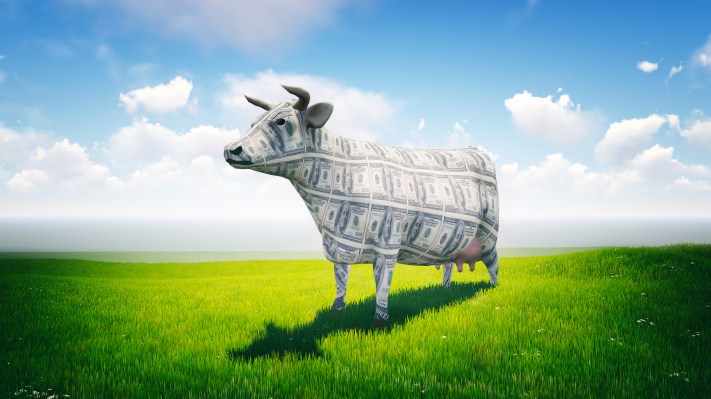It’s not often that a venture capital firm gets to back a startup again after it has exited — especially one that is still a private company.
So when Builders VC got the call that the founders of cattle management software Performance Livestock Analytics (PLA) were looking to spin out from Zoetis, which acquired them in 2020, to keep scaling, Builders general partner Mark Blackwell said he was “jumping for joy.”
On Tuesday, PLA announced that it would be spinning out from Zoetis with $7.5 million in funding from Builders VC and Alaris Capital. Builders originally backed the company in 2019 during its seed round. Blackwell said that while the company’s original exit to Zoetis was a solid outcome for the founders, he’s excited to see the startup have the ability to reach what he thinks is its true potential: becoming a software platform for cattle farmers.
“It was a very attractive value proposition given the reaction that the business had gotten since the acquisition to today,” Blackwell said. “The business is almost 2 to 3x revenue, the company is near cash flow positive, and I think this is a very rare moment in time for us to get this thing back and think about building.”
Blackwell said that he thinks the company could have a very similar future to Farmers Business Network (FBN), which provides everything from e-commerce solutions to social media to loans for farms. While FBN expanded its revenue streams largely in-house, Blackwell thinks the platform approach will work here. He’s seen it work recently with dairy startup Ever.ag, as well.
“[PLA] is a platform that farmers use three to four hours a day,” he said. “They look at it for animal health, monitoring inventory management and financials. Our view is there is no reason why we can’t build the same playbook [as FBN] and build an e-commerce node.”
Regardless of whether the company ends up reaching these final goals, the deal piqued my interest. I can’t think of the last time I heard about a company spinning out from its buyer to essentially become a startup again. Sure, there are tons of spinouts, but usually they’re private equity portfolio companies or slivers of larger corporations spinning out to go public — not raise more venture dollars.
Plus, we aren’t talking about the hottest AI company that now thinks it could do better on its own with the recent surge of investment; this is a company that monitors cows! A seemingly niche sector — in venture land, at least — despite the livestock market being a $76 billion yearly industry in the U.S. alone.
I’ve heard significantly more this year about not only agriculture tech startups in general but more specifically about funding rounds for startups focused on cattle and livestock. Halter, a herd management software for dairy farms, raised NZ$85 million ($54 million) in March from firms including Bessemer. Vytelle, another herd management startup, raised $20 million in April. I also know of another company that raised a Series A in this space that is yet to be announced.
PitchBook data shows that in Q1 of this year, the latest data, animal agriculture startups raised $326 million, which puts it on pace to match 2022’s record $1.3 billion investment total. Agriculture tech in general has taken off this year, too, raising $1.9 billion in Q1, putting it likely to come in below last year’s $12 billion total.
Blackwell said it’s a good thing that investors are finally starting to pay attention to this industry. He said that after years of backing alternative meat and dairy companies, aquaculture and indoor farming — many of which aren’t doing so hot at the moment — it’s good to see more investors coming into this space.
“For mainstream VCs, this became very acute around the size of the prize,” he said. “The pandemic drove a lot of this sensitivity around agility and sensitivity around the broader taxonomy of agriculture. There was a huge push into novel farming systems, indoor farming, aquaculture, and a lot of them are blowing up.”
There is also a sustainability angle to this. While it’s easy to assume — thank you, marketing — that many of the protein and dairy alternatives are better for the environment than what they are mirroring, many of them aren’t. Blackwell said that investing in livestock management and health is a more tangible way to lower the industry’s carbon footprint without just contributing to growing another’s.
Regardless, I expect we will start to see a lot more moo-vement in this space as investors may start to shy away from some adjacent industries that haven’t played out.
